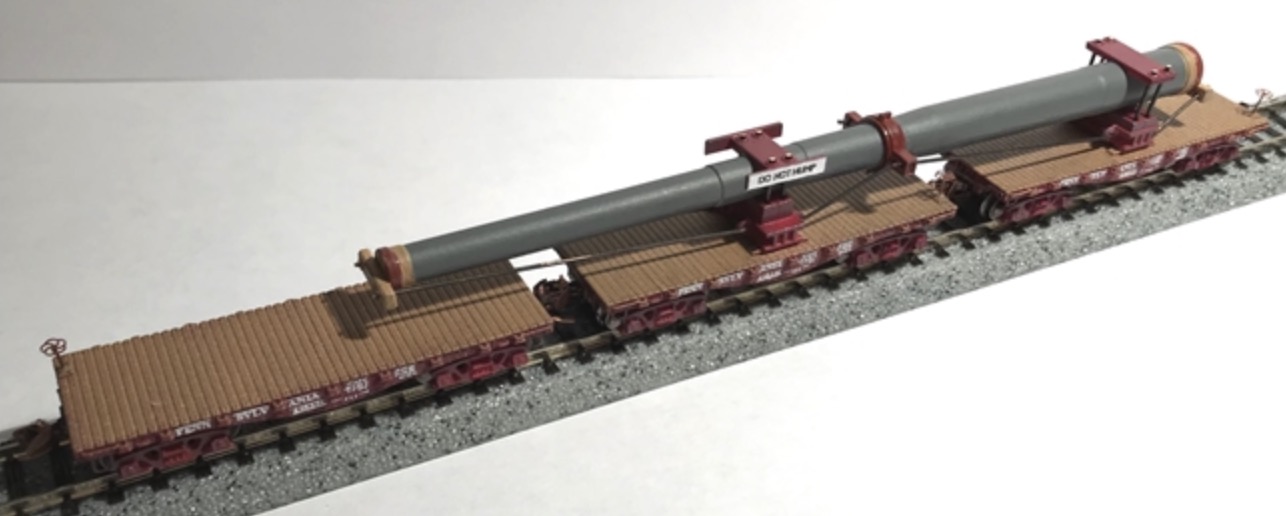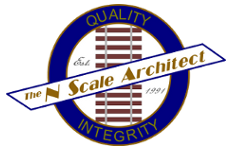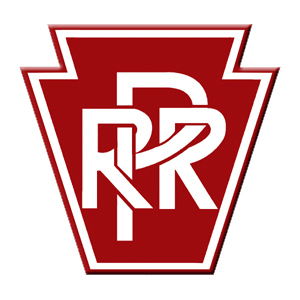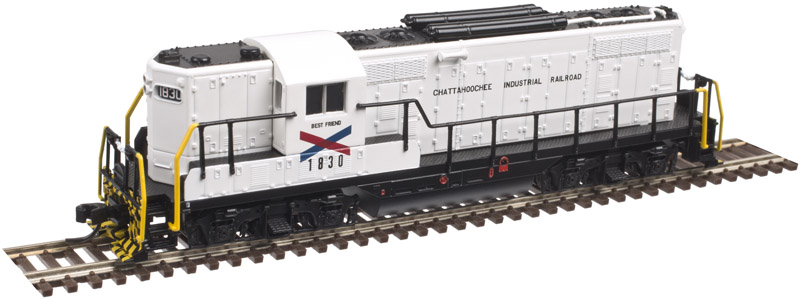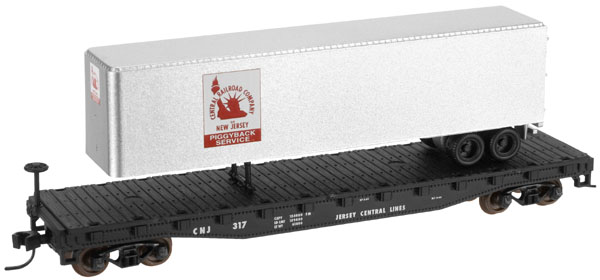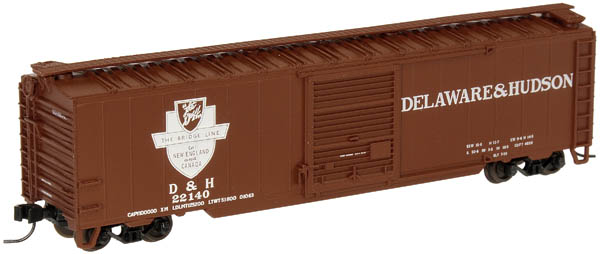Specific Item Information: These wood-decked 30 foot heavy-duty flatcars had a loading capacity of nearly 200,000 lbs when upgraded to the Crown 2F-F1 cast steel trucks modeled in this kit. These flatcars were originally designed in 1913 (drawings are dated 11-21-13) and, at their peak in the 1940's, there were over 100 in use on the Pennsylvania Railroad (PRR) roster with some of them surviving into the 1960's. This ‘3-Pak’ is designed to be used with our ‘Naval Gun Load’ kit (#20101) or to haul other large machined parts as shown in the prototype photos. These PRR F22 Flatcars are also available as a box set with our ‘Naval Gun Load’ kit at a special price (see item #20102). This kit completes three(3) F22 flatcars and includes Frosted Ultra Detail (FUD) 3-D printed parts, full-color illustrated instructions, three(3) sets of photo-etched stirrups & cut-levers, three(3) sets of brass car weights, three(3) sets of Micro-Trains brake wheels & body-mounted couplers, a dozen Fox Valley metal wheel sets and a PRR F22 decal sheet that features nine(9) verified road numbers, pertinent car data and prototypical reporting marks.
Model Information: N Scale Archtect Rolling Stock kits are made from Frosted Ultra Detail (FUD) 3-D printed parts, photo-etched details, AND bronze details. They come with weights, decals and MTL trucks and couplers.
Road Name History: The Pennsylvania Railroad (reporting mark PRR) was an American Class I railroad, founded in 1846. Commonly referred to as the "Pennsy," the PRR was headquartered in Philadelphia, Pennsylvania.
The PRR was the largest railroad by traffic and revenue in the U.S. for the first half of the twentieth century. Over the years, it acquired, merged with or owned part of at least 800 other rail lines and companies. At the end of 1925, it operated 10,515 miles of rail line; in the 1920s, it carried nearly three times the traffic as other railroads of comparable length, such as the Union Pacific or Atchison, Topeka & Santa Fe railroads. Its only formidable rival was the New York Central (NYC), which carried around three-quarters of PRR's ton-miles.
At one time, the PRR was the largest publicly traded corporation in the world, with a budget larger than that of the U.S. government and a workforce of about 250,000 people. The corporation still holds the record for the longest continuous dividend history: it paid out annual dividends to shareholders for more than 100 years in a row.
In 1968, PRR merged with rival NYC to form the Penn Central Transportation Company, which filed for bankruptcy within two years. The viable parts were transferred in 1976 to Conrail, which was itself broken up in 1999, with 58 percent of the system going to the Norfolk Southern Railway (NS), including nearly all of the former PRR. Amtrak received the electrified segment east of Harrisburg.
The PRR was the largest railroad by traffic and revenue in the U.S. for the first half of the twentieth century. Over the years, it acquired, merged with or owned part of at least 800 other rail lines and companies. At the end of 1925, it operated 10,515 miles of rail line; in the 1920s, it carried nearly three times the traffic as other railroads of comparable length, such as the Union Pacific or Atchison, Topeka & Santa Fe railroads. Its only formidable rival was the New York Central (NYC), which carried around three-quarters of PRR's ton-miles.
At one time, the PRR was the largest publicly traded corporation in the world, with a budget larger than that of the U.S. government and a workforce of about 250,000 people. The corporation still holds the record for the longest continuous dividend history: it paid out annual dividends to shareholders for more than 100 years in a row.
In 1968, PRR merged with rival NYC to form the Penn Central Transportation Company, which filed for bankruptcy within two years. The viable parts were transferred in 1976 to Conrail, which was itself broken up in 1999, with 58 percent of the system going to the Norfolk Southern Railway (NS), including nearly all of the former PRR. Amtrak received the electrified segment east of Harrisburg.
Brand/Importer Information: The N Scale Architect was founded in 1991 by Russ Kaufman who has been active in model railroading since the early 1970s. Although many model railroaders received a Lionel Train as their first train set, Russ and his brother Bill were bitten by the model railroad bug in the form of an Aurora N-Scale set.
Russ started The N Scale Architect based on the encouragement of fellow modelers who thought that the plans he had drawn up for scratch building over the years might be enjoyed by others in kit form. The first kits featured detailed step-by-step instructions with hand drawn illustrations and plastic templates to be used for cutting the various pieces. This tradition of high quality instructions continues with the addition of "in-process" and color photos and, thanks to better computer aided programs, more detailed drawings. These templates have been replaced with laser-cut micro-plywood pieces along with the addition of many detailing castings which are now also available separately as part of their "Making A Scene" product line.
Russ started The N Scale Architect based on the encouragement of fellow modelers who thought that the plans he had drawn up for scratch building over the years might be enjoyed by others in kit form. The first kits featured detailed step-by-step instructions with hand drawn illustrations and plastic templates to be used for cutting the various pieces. This tradition of high quality instructions continues with the addition of "in-process" and color photos and, thanks to better computer aided programs, more detailed drawings. These templates have been replaced with laser-cut micro-plywood pieces along with the addition of many detailing castings which are now also available separately as part of their "Making A Scene" product line.
Item created by: CNW400 on 2023-05-05 13:09:23
If you see errors or missing data in this entry, please feel free to log in and edit it. Anyone with a Gmail account can log in instantly.
If you see errors or missing data in this entry, please feel free to log in and edit it. Anyone with a Gmail account can log in instantly.



